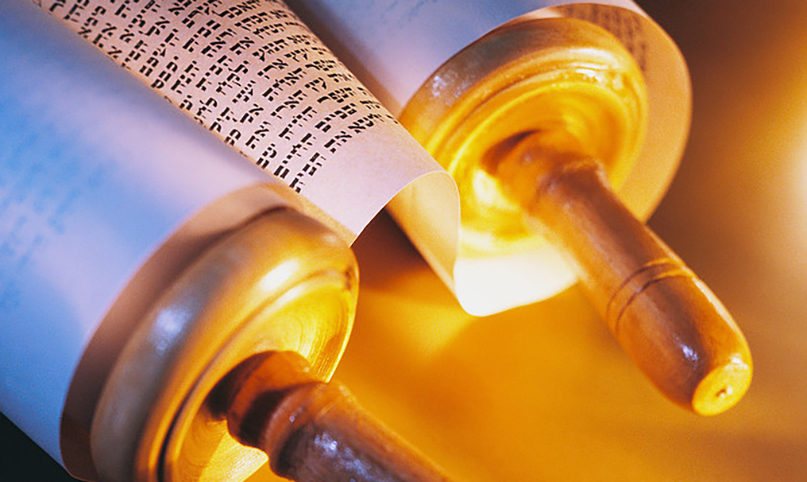
By Shlomo Riskin
A significant part of this Torah portion deals with Abraham’s purchase of the Hebron gravesite from the Hittites in order to bury Sarah, his beloved wife. In painstaking detail, the text describes how the patriarch requests to buy the grave, how the Hittites wish him to take it for free, and – when Efron the Hittite finally agrees to make it a sale – he charges Abraham the inflated and outlandish sum of 400 silver shekels. The Midrash seems perplexed: why spend all of chapter 23 of the book of Genesis over a souk sale? Moreover, why is it significant that the very first parcel of land in Israel acquired by a Jew is a gravesite? Finally, how can we explain the irony of the present day Israeli-Palestinian struggle over gravesites – the Ma’arat HaMakhpela in Hebron where our matriarchs and patriarchs are buried and Joseph’s gravesite in Shekhem – which were specifically paid for in the Bible by our patriarchs?
In order to understand that throughout the ancient world – with the exception of Athens – the only privilege accorded a citizen of any country was the ‘right’ of burial, as every individual wanted his body to ultimately merge with the soil of his familial birthplace. Abraham insists that he is a stranger as well as a resident (ger toshav) of Het; he lives among, but is not one of, the Hittites. Abraham is a proud Hebrew; he refuses the ‘right’ of burial and demands to pay – even if the price is exorbitant – for the establishment of a separate Hebrew cemetery. Sarah’s separate gravesite symbolizes her separate and unique identity. Abraham wants to ensure that she dies as a Hebrew and not a Hittite. The Hittites are more than willing to give Sarah a free grave, because they want to claim her as a Hittite.
This parasha reminds me of two poignant stories. First, when I was a young rabbi, one of the first “emergency’ questions I received was from an older woman leaning on a young Roman Catholic priest for support. She tearfully explained that her husband – who had died just a few hours earlier – was in need of a Jewish burial place. He had converted to Catholicism prior to having married her, and agreed that their children would be raised as Catholics. The Roman Catholic priest was, in fact, their son and she had never met any member of her husband’s Jewish family. Even though they lived as Catholics during their married life, his final deathbed wish had been to be buried in a Jewish cemetery.
Second, when my beloved friend Zalman Bernstein z”l was still living in America and beginning his return to Judaism, he asked me to find him a gravesite in the Mount of Olives cemetery. With the help of the Hevra Kadisha (Sacred Fellowship) of Jerusalem, we set aside a plot. When he inspected it, however, he was most disappointed: “You cannot see the Temple Mount,” he shouted. I explained that after 120 years, he either wouldn’t be able to see anything anyway, or he would be able to see everything no matter where his body lay. “You don’t understand,” he countered. “I made a mess of my life so far and did not communicate to my children the glories of Judaism. The grave is my future and my eternity. Perhaps, when my children come to visit me there, if they would be able to see the holiest place in the world, the Temple Mount, they will be inspired by the Temple and come to appreciate what I could not adequately communicate to them while I was alive.”
For each individual, their personal gravesite represents the past and the future. Where and how individuals choose to be buried speaks volumes about how they lived their past lives and the values they aspired to. Similarly, for a nation, the gravesites of its founders and leaders represent the past and reveal the signposts of the highs and lows in the course of the nation’s history. The way a nation regards its gravesites and respects its history will determine the quality of its future.
Indeed, the nation that chooses to forget its past has abdicated its future, because it has erased the tradition of continuity which it ought have transmitted to the future; the nation that does not properly respect the gravesites of its founding patriarchs will not have the privilege of hosting the lives of their children and grandchildren. Perhaps this is why the Hebrew word, kever, literally a grave, is likewise used in rabbinical literature for womb. And the Hebrew name Rvkh (Rebecca), the wife of Isaac who took Sarah’s place as the guiding matriarch, is comprised of the same letters as hkvr, the grave and/or the womb, the future which emerges from the past.
Is it then any wonder that the first parcel of land in Israel purchased by the first Hebrew was a gravesite, and that the fiercest battles over ownership of the land of Israel surround the graves of our founding fathers and mothers? The grave is also the womb; the past is mother to the future.
Rabbi Shlomo Riskin is chancellor of Ohr Torah Stone and chief rabbi of Efrat, Israel.







 Southern New England Jewish Ledger
Southern New England Jewish Ledger












